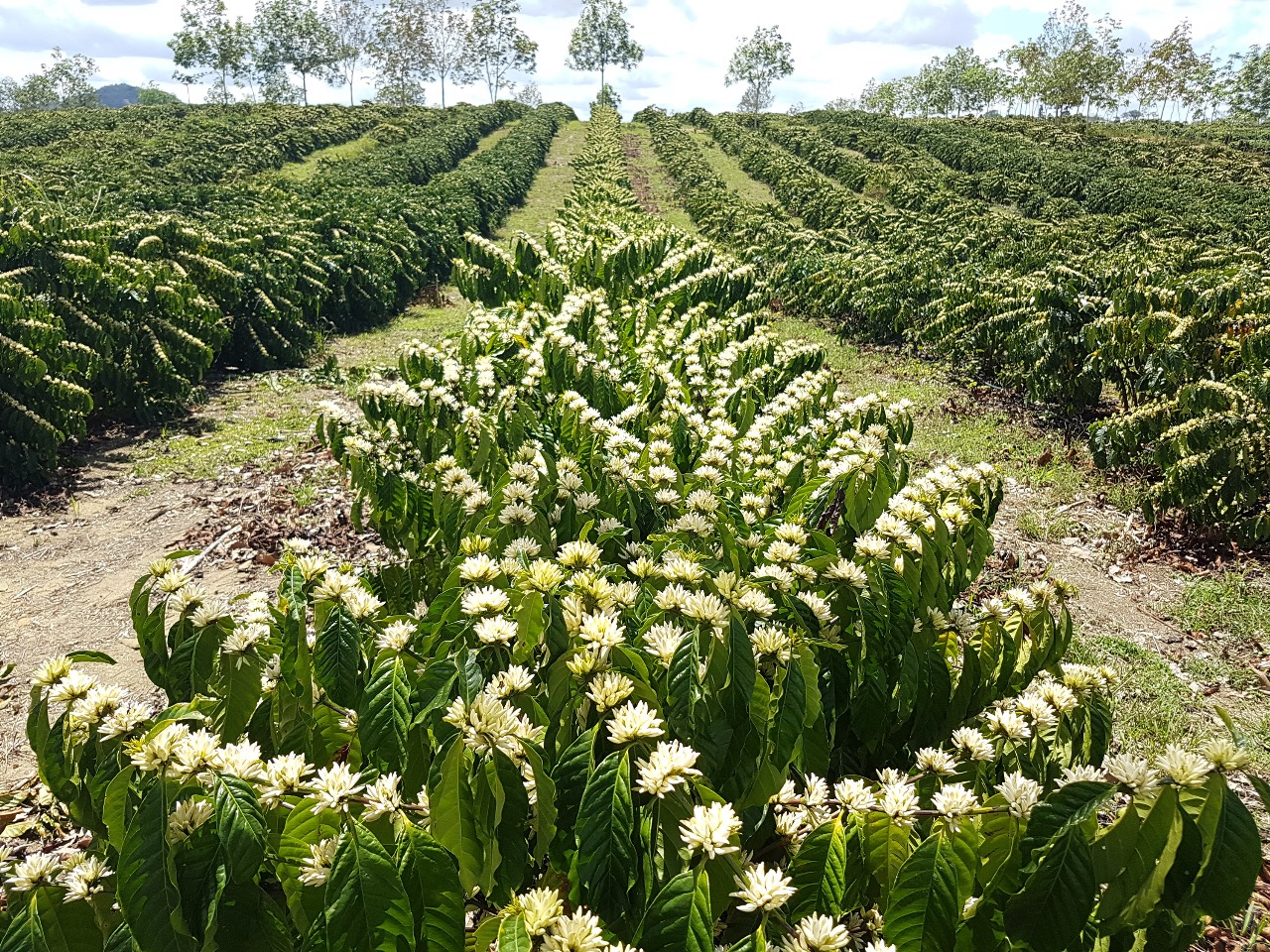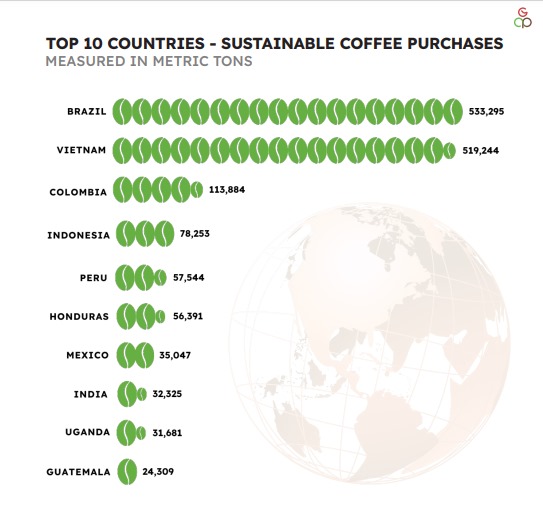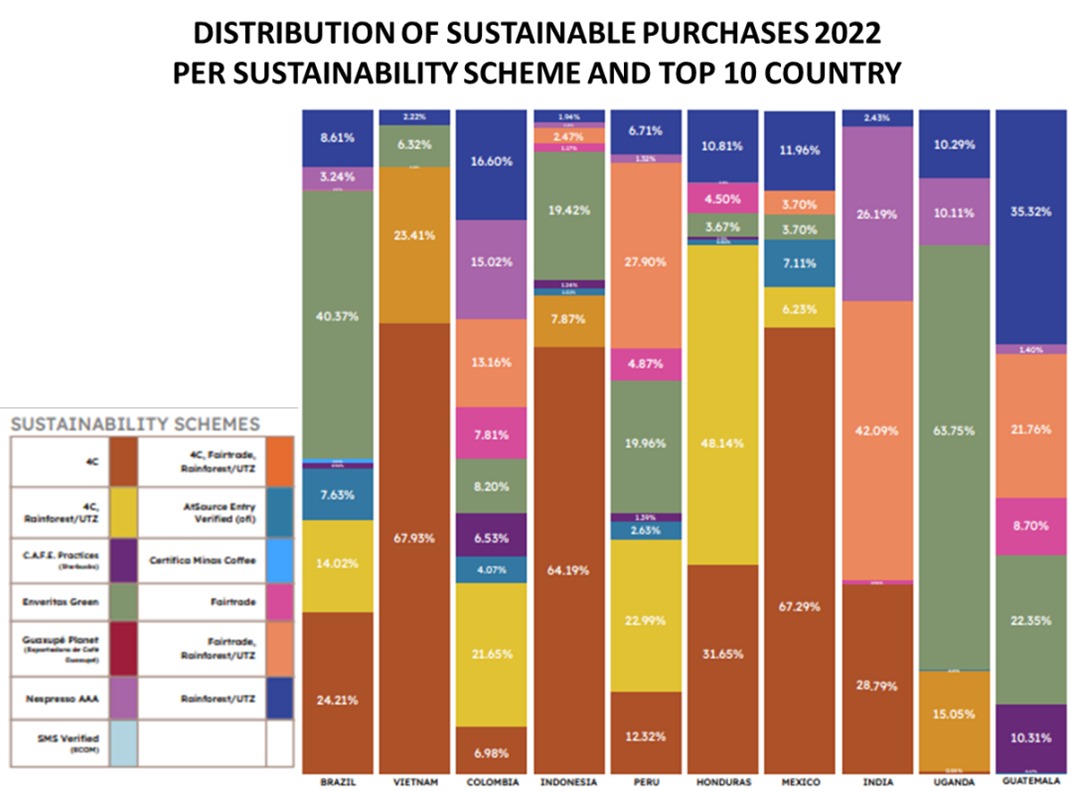The country produces 1/3 of coffee purchases from sustainability schemes recognized by the Global Coffee Platform

The consolidation of ESG criteria as a driving force behind global trade and investment is nothing new. In agri-food supply chains, this is evident in the demand for greater transparency on compliance with human and labor rights, land tenure and respect for indigenous and traditional peoples’ rights, conservation of natural resources, including forests, biodiversity and water, mitigation of and adaptation to the effects of climate change, and other sustainability issues. In addition to the behavior of consumers – who increasingly value responsible consumption and want to ensure that the satisfaction of their demand does not cause environmental and social damage locally and globally – the main destination markets for Brazilian coffee have adopted legislation requiring mandatory due diligence along the supply chain to ensure that imported products meet ESG criteria.

These include the recently adopted European Deforestation Regulation, the European Commission’s proposal for a Corporate Sustainability Due Diligence Directive, and the German Supply Chain Due Diligence Act, which goes into effect in January 2023. Other countries, such as the United Kingdom, Switzerland and the United States, are also debating new rules on deforestationfree trade and corporate social responsibility.
Given these changes in international trade relations, it is expected that sustainability certifications and schemes will become a benchmark for access to markets that are more demanding in terms of ESG criteria and will also grow in importance as indicators to meet demands for greater market transparency regarding sustainability in the supply chain.
Brazilian coffee is well positioned to meet the demands of consumer markets, with a strong and thorough national regulatory framework that takes into account the protection of social and environmental rights, and a mature and well-organized production chain – from research to the cup. This combination creates an enabling environment that provides coffee growers with integrated services such as access into an important contribution to improving social welfare, quality of life and conservation of natural resources in coffee-growing regions.
The results of these efforts can be seen in the Global Coffee Platform’s (GCP) recently released Sustainable Coffee Purchases Snapshot 2022, which publishes the volume of coffee purchased from GCP-recognized.
Among the 34 countries of origin of coffee purchases from GCP-recognized sustainability schemes, Brazil stands out as the top global supplier of sustainable coffee, accounting for 533,295 metrictons, or 33% of the total volume of sustainable purchases reported by the above companies, which was 1,606,909 metrictons.
Compared to Snapshot 2021, the volume of sustainable coffee purchases from Brazil reported to GCP by global companies increased by 49% – a significant increase from the 357,337 metrictons reported last year to the 533,295 metrictons in the current report.

These fi gures demonstrate Brazil’s ability to meet the growing global demand for sustainable coff ee. On the other hand, the report also notes the wide variety of sustainability schemes and multicertifications that currently coexist in the coff ee growing regions, creating a problem of increased operational costs and requiring a lot of eff ort and time from coff ee farmers to meet the multiple requirements of audits and verifi cations and to demonstrate multi-equivalence.

Cecafé, through its Social Responsibility and Sustainability Pillar, aims to shed light on this important issue so that the industry can move forward with concepts and tools that reduce operational costs and the complexity of verifying and demonstrating compliance with ESG parameters throughout the supply chain. Brazil will strengthen its position as a global leader in sustainable coff ee supply by implementing technology and knowledge to simplify processes.

Marcos Matos
CECAFÉ CEO
Silvia Pizzol
CECAFÉ Sustainability Manager


Leave A Comment